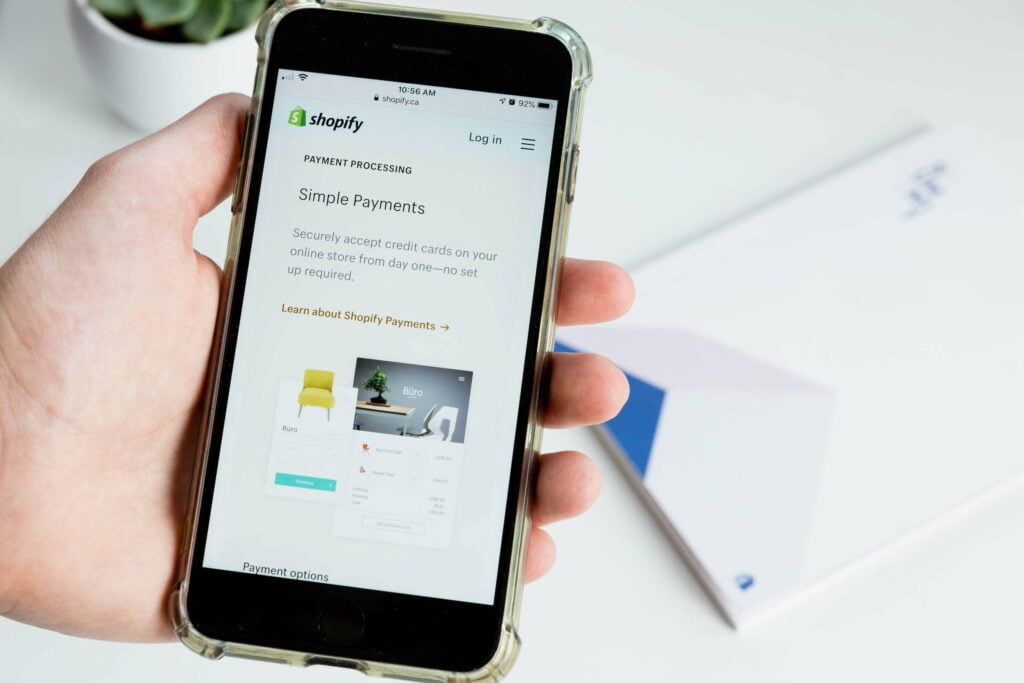In the riveting world of event ticketing, one question has been asked more times than “What’s the WiFi password?” And that question is: “Is Ticketmaster legit?” Alright, I know what you’re thinking – event ticketing might not be the sexiest topic on the planet, but let’s be real: nobody wants to waste their hard-earned money on a scam.
So let’s put our investigative hats on and dive into the facts, figures, and anecdotes to determine if Ticketmaster is as legit as your grandma’s apple pie.

The Almighty Dollar: Revenue and Market Share
First things first – if we’re trying to determine the legitimacy of Ticketmaster, we need to talk about money. In 2019, Ticketmaster generated a whopping $1.54 billion in revenue, making it a dominant player in the industry. Cold, hard, digital cash.
While the pandemic put a damper on its earnings in 2020, the company has since rebounded, proving that it’s still got some serious staying power.
Regarding market share, Ticketmaster is like the LeBron James of ticketing, holding a jaw-dropping 80% of the primary ticketing market in the US. With such a massive slice of the pie, it’s hard to argue that Ticketmaster is anything but a legit force in the ticketing world.
Customer Satisfaction: They Can’t All Be Wrong, Can They?
Let’s talk about customer satisfaction because, let’s face it – nobody wants to deal with a company that treats its customers like a pile of dirty laundry.
According to a 2019 survey, Ticketmaster ranked as the second most popular ticketing site among US consumers, with a solid 28% of respondents saying they preferred to purchase tickets through the platform.
Sure, it’s not quite the gold medal, but it’s a pretty strong indication that many people are happy with the service they receive.
But what about the naysayers? You know, those who claim that Ticketmaster is a scam, a rip-off, or the spawn of Satan himself? Well, there’s no denying that there have been some controversies surrounding the company over the years (more on that later), but it’s important to remember that no company is perfect.
And with millions of satisfied customers to its name, Ticketmaster is clearly doing something right.
Security: Are Your Personal Deets Safe and Sound?
It’s 2023, and we’re all paranoid about online security, right? There’s nothing worse than having your personal information end up in the hands of some nefarious hacker in a dimly lit basement. So how does Ticketmaster stack up when it comes to keeping your data safe and sound?
Well, the good news is that the company has made significant investments in its security infrastructure, implementing measures like multi-factor authentication, encryption, and regular security audits. In fact, in a 2020 survey of the top 100 e-commerce websites, Ticketmaster was ranked as one of the most secure platforms.
Sure, there was that unfortunate data breach in 2018, but the company has since upped its security game, and let’s be honest – even the best of the best can fall victim to a cyber attack (looking at you, Sony).
Fees, Fees, and More Fees: Are You Being Gouged?
Ah, the dreaded topic of fees. Every time you try to buy a ticket online, you’re hit with a barrage of unexpected charges that make your wallet want to cry. So is Ticketmaster a fee-gouging monstrosity, or are they just doing what every other ticketing platform does?
The reality is that fees are a part of the ticketing industry, like it or not. Ticketmaster charges fees for things like service, processing, and delivery, which can add a hefty chunk to the total cost of your ticket. But here’s the thing: they’re not alone in this practice.
Most ticketing platforms charge similar fees, and while they might not be the most beloved aspect of buying tickets, they’re not exactly evidence of a scam.
But let’s get down to brass tacks: are Ticketmaster’s fees really that bad?
According to a 2020 study, the average service fee on Ticketmaster was around 14.5% of the ticket price, while competitor StubHub charged an average fee of 15.6%. So while Ticketmaster’s fees might not be the lowest in the industry, they’re certainly not the highest either.
In the words of the great philosopher Mick Jagger, “You can’t always get what you want.” And in the ticketing world, that means accepting that fees are a part of the game. As long as Ticketmaster remains transparent about its charges and continues to stay competitive with other platforms, it’s hard to argue that their fees to transfer tickets are anything but legit.
Controversies and Lawsuits: The Dark Side of Ticketmaster
Okay, so we’ve covered the good stuff, but what about the not-so-good? It’s no secret that Ticketmaster has had its fair share of controversies and legal battles over digital tickets over the years, ranging from accusations of monopolistic practices to consumer class-action lawsuits.
But here’s the thing: controversies and lawsuits don’t necessarily mean a company is illegitimate. In fact, it’s often the biggest and most successful businesses that find themselves in the crosshairs of public scrutiny and legal challenges.
Ticketmaster has faced the music, settled some lawsuits, and changed its practices in response to public outcry. While these controversies might not paint the rosiest picture of the company, they don’t necessarily indicate that Ticketmaster is a scam or a sham.
The Ticketmaster Taylor Swift Controversy:
The controversy surrounding Ticketmaster and Taylor Swift’s concert tour in 2023 stemmed from ticketmaster account of various issues with the ticket sales process. Here’s a detailed account of what happened:
- Background: Taylor Swift announced her “Eras Tour” in support of her album “Midnights” and her previous albums. The tour was set to be the biggest in her career, with 27 dates initially across 20 cities in the U.S., which was later expanded to 52 dates due to high demand.
- Ticket Sale Fiasco: The controversy began during the presale of tickets. On November 15, 2022, the day of the presale, Ticketmaster’s website crashed due to “historically unprecedented demand with millions showing up.” The ticketing platform’s servers could not cope, leading to users being logged out or stuck in long queues. It resulted in the cancellation of the public on-sale planned for November 18, as the demand far exceeded the available tickets.
- Criticism and Response: Ticketmaster faced criticism over its ticketing model, which many customers found obstructive to purchasing tickets. Complaints were about long waits, technical issues, and poor customer service. The situation became so problematic that it led to Taylor Swift herself stating she was “pissed off” at the situation, criticizing Ticketmaster for assuring her they could handle the demand.
- Senate Judiciary Committee Hearing: The situation escalated to the extent that it was discussed in a U.S. Senate Judiciary Committee hearing. President and CFO of Live Nation, Joe Berchtold, apologized to fans and Swift, admitting they could have handled the sales better. Issues like lack of competition, problems with bots, and the fee structure of Live Nation (parent company of Ticketmaster) were discussed. Senators highlighted the need for new legislation or better enforcement of existing laws to protect consumers.
- Impact and Ticketmaster’s Defense: Ticketmaster argued that bots used by scalpers were a significant factor behind the debacle. They noted an overwhelming number of system requests during the sale, four times their previous peak. They also pointed out their attempt to slow down sales to stabilize their systems, leading to prolonged queues and wait times.
- Taylor Swift’s Success Despite Controversy: Despite this controversy, Taylor Swift’s “Eras Tour” was a record-breaking success. She made an estimated $1.03 billion during the 2023 leg of the tour, contributing to her achieving billionaire status in the same year. The demand for her concert tickets highlighted her immense popularity and influence in the pop culture and music industry.
This controversy brought to light several issues with the ticket-selling process and the dominance of companies like Ticketmaster, prompting discussions about the need for better regulation and competition in the industry.
Ticketmaster Fees for Sellers:
When selling tickets through Ticketmaster, there are various fees you should be aware of. These fees help cover the costs associated with the services provided by Ticketmaster, such as ticket processing, delivery, and platform maintenance. Here’s an overview of the key fees involved:
- Service Fee: This is a fee charged for using Ticketmaster’s services, including ticket processing and customer support. It is usually a percentage of the ticket price or a flat fee, varying by event.
- Convenience Fee: This fee is applied for the convenience of purchasing tickets online or through a mobile app. It’s typically added per ticket or per order.
- Processing Fee: This is a flat fee per order that covers the cost of processing your ticket order.
- Delivery Fee: If physical tickets are mailed, or certain delivery methods are used, Ticketmaster may charge a delivery fee for this service.
- Print-at-Home Fee: If you opt for print-at-home tickets, a fee might be charged to cover the cost of this option.
- Will-Call Fee: There might be an associated fee for tickets picked up at the venue’s will-call window.
- Resale Fees: Using Ticketmaster’s platform to resell tickets may involve fees based on the event and the price you’re selling the tickets.
- Credit Card Processing Fee: This fee is associated with processing payments through credit cards and might be a percentage of the transaction amount.
- Facility Fee: Some events or venues might have a facility fee that goes toward the maintenance and operation of the venue, often set by the venue itself.
When selling tickets on Ticketmaster, you should also know the final sales commission fees deducted from the ticket price. The commission fee typically ranges from 10% to 15% of the ticket price. For instance, for a concert ticket priced at $50, a 15% commission fee would be $7.50, leaving the primary ticket seller with $42.50.
Other potential fees include payment processing fees and ticket refund fees. Payment processing fees are usually a small percentage of the ticket price and cover the cost of the credit card company securing the transaction. In case of a refund, there may be administrative fees involved.
It’s important for ticket buyers to note that these fees vary widely based on factors such as the event, venue, location, and other specific circumstances. Always review the fee breakdown before completing your ticket purchase or sale, as Ticketmaster typically displays these fees during checkout.
How to Verify that the Tickets are Legit:
Verifying the authenticity of your tickets is crucial to ensure you have a legitimate entry to an event. Here are some general tips on how to verify if your tickets are legitimate:
- Purchase from Official Sources: Always buy tickets from official sources like the event’s official website, the venue’s box office, or reputable ticket-selling platforms like Ticketmaster, StubHub, or SeatGeek. Purchasing from official sources greatly reduces the risk of buying fake tickets.
- Check the Seller’s Reputation: If you buy from a reseller or a third-party platform, check the seller’s reputation. Look for reviews, ratings, and feedback from other buyers to ensure the seller is reliable.
- Inspect the Ticket Details:
- Barcode: Genuine tickets have a unique barcode. Check if the barcode looks altered or if it is missing.
- Event Details: Ensure that the event details like date, time, venue, and seat numbers (if applicable) are printed and accurate.
- Spelling and Grammar: Check for any spelling mistakes or grammatical errors. Official tickets will not have such errors.
- Beware of Too-Good-to-Be-True Deals: Be cautious if the ticket prices are significantly lower than the official or market price. If a deal seems too good to be true, it probably is.
- Use Secure Payment Methods: Use secure and traceable payment methods when purchasing tickets. Avoid paying via cash, wire transfers, or other untraceable methods.
- Contact the Venue or Event Organizer: If you have doubts about the authenticity of a ticket, contact the venue or the event organizer directly. They can often verify if a ticket is legitimate.
- Look for Watermarks or Holograms: Some tickets may have watermarks or holograms as a security feature. Check for these, especially if the event is high-profile.
- Avoid Duplicate Tickets: Be aware that some scammers sell photocopies of a legitimate ticket to multiple people. Always check the authenticity and avoid purchasing print-at-home tickets from unofficial sources.
- Mobile Tickets: Ensure digital or mobile tickets are transferred to you through the official app or platform. This transfer method usually verifies the ticket’s authenticity.
- Stay Informed About Scams: Be aware of common ticket scams and how scammers operate.
Remember, purchasing directly from official sources is the safest way to ensure ticket authenticity. If you’re ever in doubt, it’s best to consult with the event organizers or the official ticketing service.
Frequently Asked Questions:
Are the tickets sold on Ticketmaster guaranteed to be authentic?
Yes, Ticketmaster works directly with event organizers and venues, so the tickets sold on the platform are guaranteed to be authentic.
What happens if an event is cancelled or postponed?
If an event is canceled, Ticketmaster typically offers refunds to customers. If an event is postponed, your tickets will generally still be valid for the rescheduled date.
How can I avoid paying high fees on Ticketmaster?
While it’s difficult to avoid fees entirely, you can sometimes find lower fees by purchasing tickets directly from the venue’s box office or by participating in presales and special promotions.
Is it safe to buy tickets from other users on Ticketmaster?
Ticketmaster offers a fan-to-fan resale platform that allows users to buy and sell tickets securely. This can be a safe option for purchasing tickets from other users, as the platform verifies the authenticity of the tickets.
Can I transfer my tickets to someone else?
In most cases, you can transfer your tickets to someone else through the same Ticketmaster platform. However, some events may have restrictions on ticket transfers, so it’s best to check the specific event details before attempting to transfer your tickets.
Are there any alternatives to Ticketmaster for buying event tickets?
Yes, there are several alternatives to Ticketmaster, including StubHub, Vivid Seats, and AXS. Each platform has its own fees and policies, and ticket deals, so it’s important to research and compare your options before making a purchase.
What should I do if I suspect a ticketing scam?
If you suspect a ticketing scam, it’s important to report it to the proper authorities, such as ticketmaster scams your local police department or the Federal Trade Commission. You should also contact Ticketmaster’s customer service to alert them to the potential scam and seek guidance on how to proceed.
The Final Verdict: Is Ticketmaster Legit?
After wading through the data, anecdotes, and opinions, it’s time to deliver a verdict on the legitimacy of Ticketmaster. Drumroll, please…
Ticketmaster is, indeed, legit. Sure, it’s had its controversies, and its fees might make your bank account weep, but when it comes down to it, Ticketmaster is a reliable and secure platform for purchasing tickets to your favourite events.
With a massive market share, millions of satisfied customers, and robust security measures in place, it’s hard to argue that the company is anything but a legitimate player in the ticketing world.




